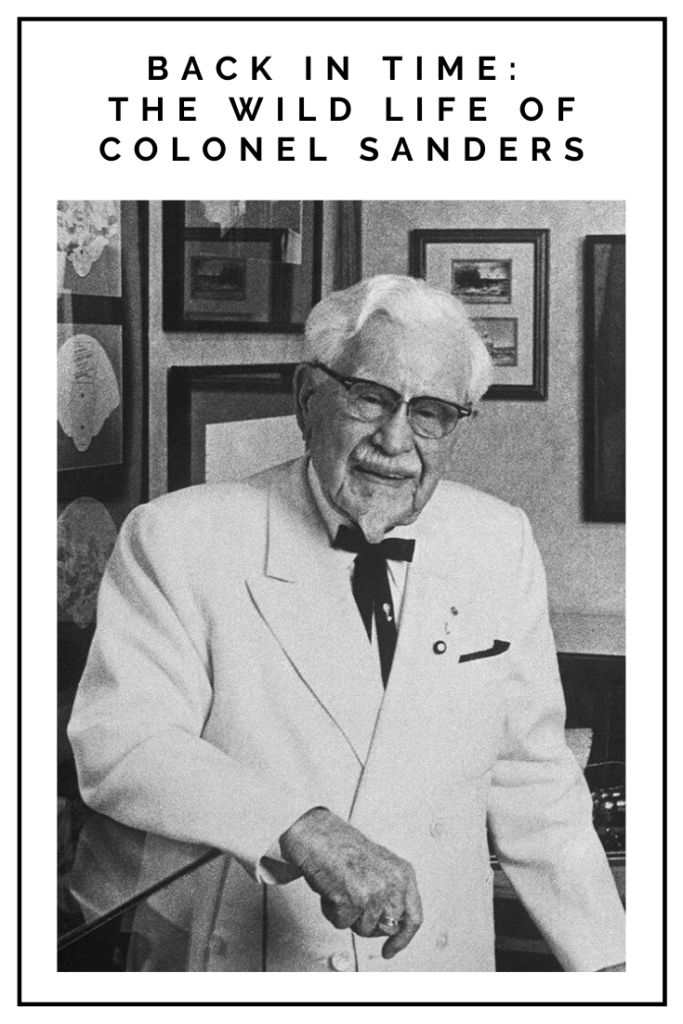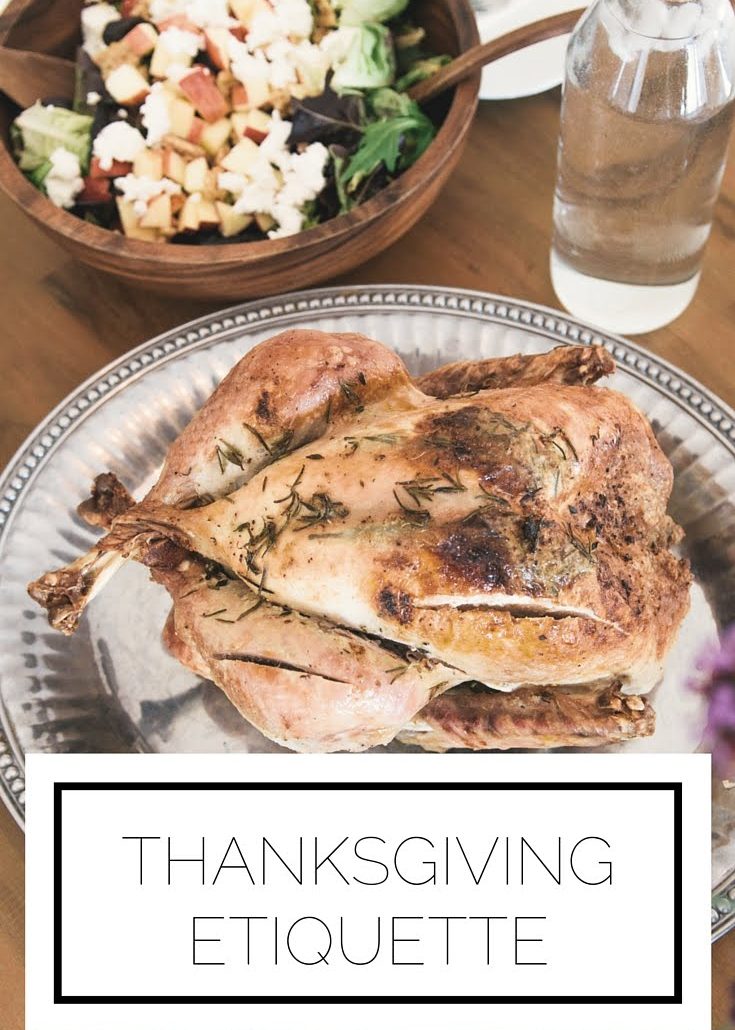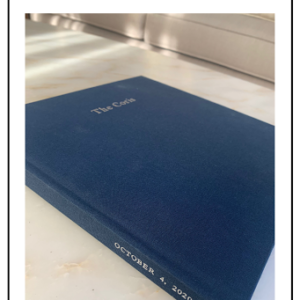It has been a long, long time since I did a true Back in Time post. It’s also been a while since a historical topic has caught my fancy. Today we’re going to dive into the life of Colonel Sanders. You know and love him as the face of KFC (previously Kentucky Fried Chicken), but now it’s time to learn how the Colonel created his company when others his age would be entering retirement.

I wanted to write this post because there seems to be a lot of misinformation out there about the Colonel. One of the best articles I found came from the New Yorker in 1970. If you want to get all the details, you can check out the long article here. If not, I pulled out the highlights and made some of my own connections. As you know, I always look for some parallel to the Revolutionary period. In this post, look out for the similarities to Alexander Hamilton; out in the world at a young age, becoming a lawyer despite a lack of formal education, engaging in shootouts…tell me if you see it. Enjoy!
The Beginning
Harland Sanders was born in Indiana in 1890. His father died when he was a young boy and his mother had to travel for work, leaving Sanders and his two younger siblings to fend for themselves. His interest in cooking developed and improved out of necessity, though he never expressed much concern for being left in charge. He explained that his mother taught them well (including not to smoke or drink) and “We knowed enough not to burn the house down— I don’t know why kids are so different today. We was already firmly disciplined.”
At twelve he began working as a farm hand and soon after he decided to leave school. His career was all over the place after that. From being a streetcar conductor, to a fireman for railroads, to an attorney (he learned the law through a correspondence program. And his career as an attorney ended after he got into a fistfight with his own client in court), to delivering babies (as he said “There was nobody else to do it. The husbands couldn’t afford a doctor when their wives were pregnant”), to a tire salesman, to a short stint in the army (he did not become a colonel at that time), and finally to a service station manager for Shell.
The start of something finger lickin’ good
To make some extra money, Sanders capitalized on his cooking skills learned long ago to create another stream of revenue at the service station he managed. He came up with his secret recipe (that is still guarded from franchises today) and a pressure cooking method that made his chicken standout.
Things were going smoothly and his method of promoting his restaurant was working out, until a competitor painted over one of his signs. A Shell company manager went with Sanders to confront this competitor, and the Shell company manager was shot and killed. Sanders grabbed his gun and fired back at the competitor, but did not kill him. Sanders was not charged, and went back to peacefully making his chicken.
Until…the highway route was changed a decade later and he was not getting nearly the same traffic. This happened just as he was getting near retirement age and instead of hanging up his apron, he decided it was time to figure out another way to grow the business.
Spreading the chicken goodness
The Colonel (he was given this honorary title by the governor of Kentucky) began to franchise his operations and was highly selective in who he brought on. One notable early partner was Dave Thomas, who was so successful that he ended up saving enough money to leave and start his own fast food chain: Wendy’s.
The growth of Kentucky Fried Chicken was mind blowing. Less than 8 years after starting the business he had 600 franchise locations in the US and Canada, and a small team that worked on packaging the secret spices and mailing them out to all of the locations.
Selling the Colonel and his chicken
I love learning about a good salesman, and the man who the Colonel ultimately decided to sell his business too was just that. John Y. Brown, Jr. started out selling vacuum cleaners at 16, sold encyclopedias throughout his undergraduate and law school years, eventually becoming a district manager for the encyclopedia company because of his success as an individual contributor. When he met the Colonel and learned that there were so many franchise locations he assumed that there was a team of salesman finding franchise partners. However, it was just the Colonel who at that point did not solicit. Brown knew that the potential was massive if he could put his sales skills to work.
He offered to buy the company, with financial backing from a partner. The Colonel at first said it was out of the question, but Brown went on a sales campaign to see anyone who was close to Sanders and would be affected by the sale to convince them to persuade Sanders, and it worked! The Colonel was not pleasant about it, and worried about quality control (and was known to express this quite vocally until the end of his life. Check out the New Yorker article for some great quotes. He also sued the company 1968, but settled out of court), but the deal was made.
Brown began to market the Colonel (check out these commercials!) and change parts of the operation to help it scale all the more rapidly. There are now more than 20,000 locations in more than 125 countries.
What’s your favorite part of Colonel Sanders’ story?
-Alyssa J





Leave a Reply